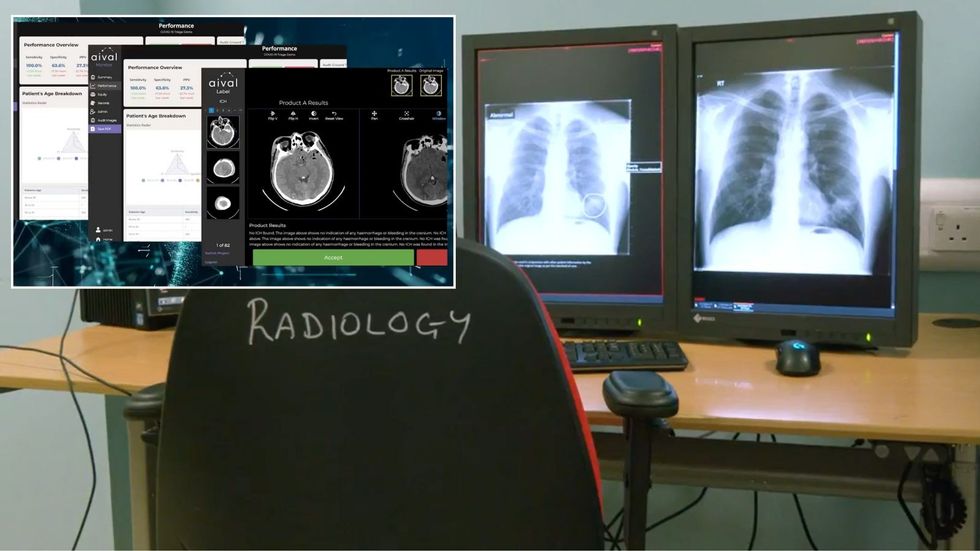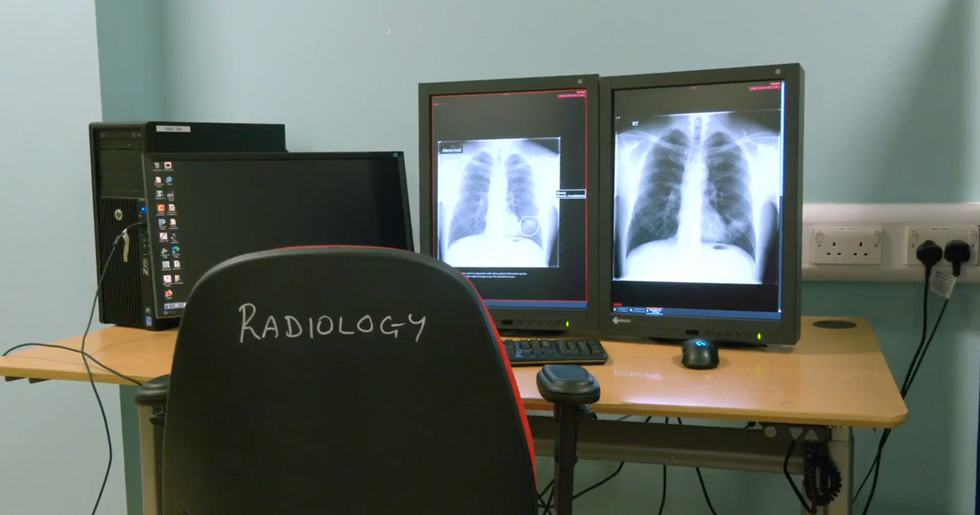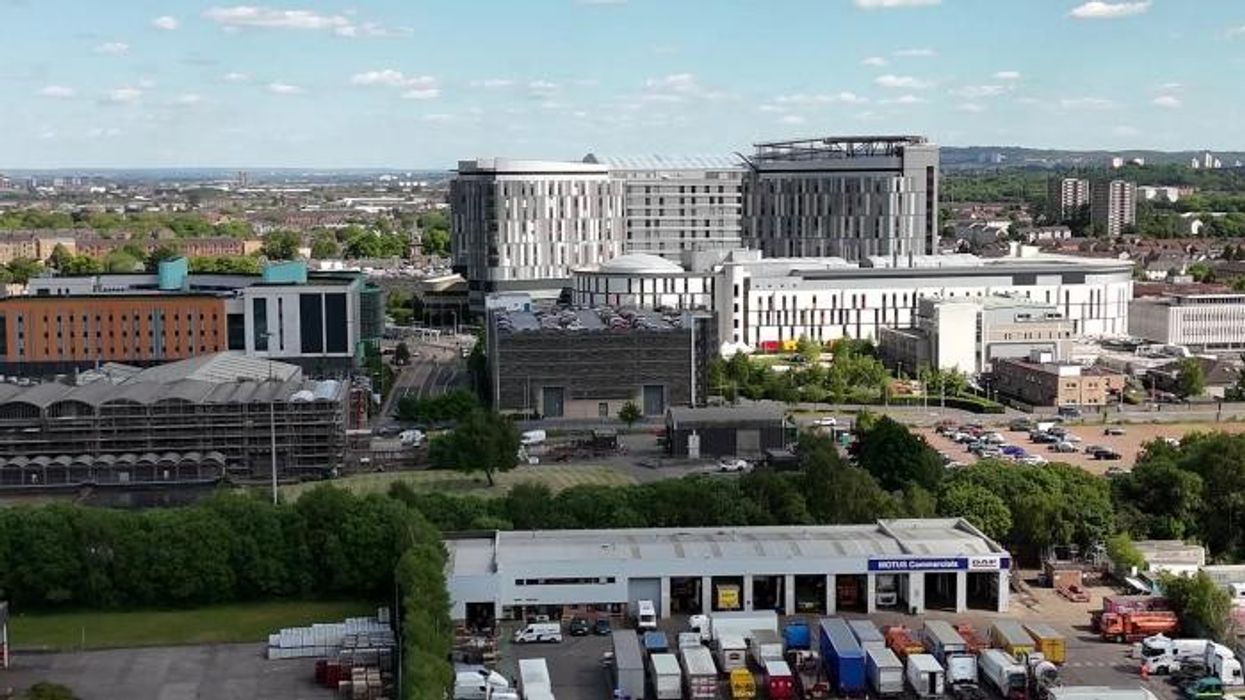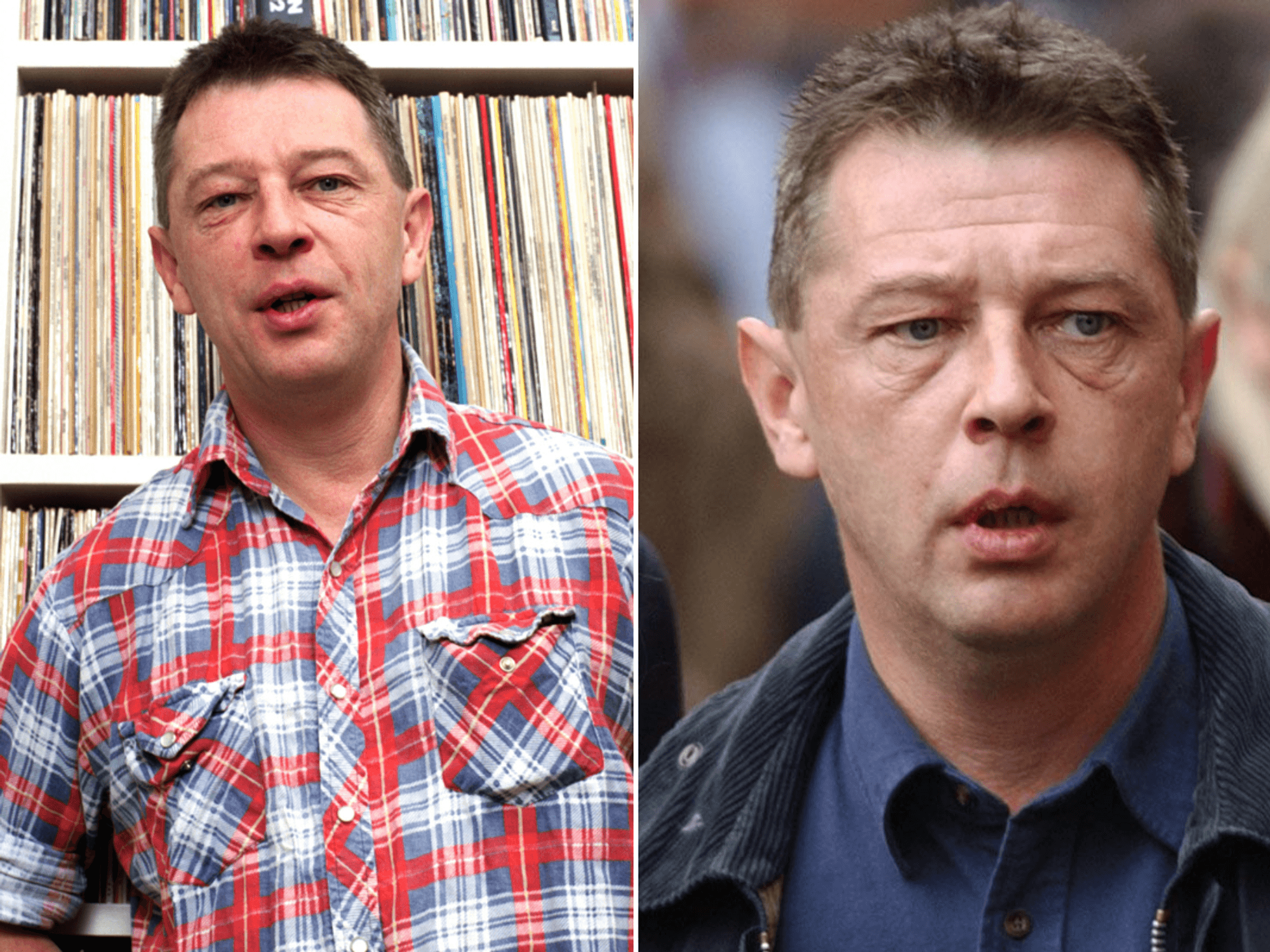NHS Scotland launches AI trial to help detect lung cancer and strokes in X-rays - 'Huge potential!'
Affected patients showing abnormalities in their X-rays can be informed immediately
Don't Miss
Most Read
Latest
Two Scottish health boards are trialing a revolutionary artificial intelligence scanning of X-rays to detect signs of lung cancer and head trauma.
Scans captured at hospitals in NHS Greater Glasgow & Clyde and NHS Lothian have been given a "first look" by the hospital’s AI on a closed network before being added to a queue for radiologists to review.
Affected patients showing abnormalities in their X-rays can be informed immediately, avoiding the lengthy NHS outpatient backlog and allowing radiologists to review scans and begin treatment journeys up to two months earlier than before.
The advancement is not without its limitations - the technology has not yet advanced to effectively scan the composite pictures of MRI scans and 3D models.

Two Scottish health boards are trialing a revolutionary artificial intelligence scanning of X-rays to detect signs of lung cancer and head trauma
|GB News
Consultant radiologist at Glasgow’s Queen Elizabeth University Hospital, Dr Mark Hall, said cost is another roadblock, but added that the public understands the potential of effective early diagnosis powered by AI.
He said: “Everyone we’ve spoken to through our patient groups are onboard and well behind artificial intelligence.
“They understand that doctors, nurses and the care system are under pressure so anything that can be used to help alleviate that and improve patient care is worthwhile.”
He added that the ability for the AI to fast track patients flagged for potential cancer in their X-rays has “reshuffled the deck” for cancer treatment.
“We’ve had patients in the last couple of weeks where a CT scan has been done one or two days after the chest x-ray has been done,” he said.
"And they’ve started down that lung cancer pathway within one or two days of seeing a GP.
“Prior to this coming in, patients were waiting eight weeks to get that journey started.”
The technological leap has been made possible by a £1 million project partnering NHS Scotland with London-based AI validation company Aival, which closely monitors the results to ensure that the anonymous, globally-sourced data remains effective and relevant for Scottish patients.
Aival founder and CEO Kanwal Bhatia ensures the system is free from "AI drift" and the system is monitored so it does not deviate while reading and reviewing thousands of unique data sets.
She said: “AI has huge potential to transform patient outcomes, diagnose scans faster and more consistently,
“What Aival does is provide that guarantee and confidence by testing these products rigorously but also efficiently.”
Bhatia points out that the health service is under strain, furthered by a global shortage of radiologists and so AI has the potential to bring results to patients faster, and save precious time in getting patients started on the right treatment plans.
With as many as 200 AI products available to some hospital departments, Bhatia said the time is right to set standards and expectations now in order to benefit in the future.
“And once that product is in use on patients,” she said, “we will then ensure they keep working well over time by monitoring them through their use as they’re being deployed.

Affected patients showing abnormalities in their X-rays can be informed immediately, avoiding the lengthy NHS outpatient backlog and allowing radiologists to review scans and begin treatment journeys up to two months earlier than before
|GB News
Despite a rising number of headlines concerning the threat of generative AI pricing out artists and offering significant cost savings for creative industries, the public on the streets of Glasgow are largely able to differentiate between these two examples of artificial intelligence in action.
“If it makes things more efficient, I’m all for it,” said one man in the city centre, “and if it makes people healthier, I’m all for it.”
Another Glaswegian said that the growth of AI is already outpacing NHS researchers: “On health matters, I think it seems really good - it seems to have been doing a lot more than scientists have been doing for a long time, like picking cancer up more.”
Not everyone was so easily convinced.
Retired grandmother Catherine, who told GB News: “In some extremes I do think that it’s okay but in others, what are they doing with the details?
“The way AI is going now, I’d worry anyone would be able to log into [the NHS app] and see them, so where’s the privacy in it?”
NHS Scotland said all data - from international and Scottish patients - is anonymised and the AI is currently running on a closed system while Aival validates its compatibility with the Scottish population.
Assisted by Aival’s stringent validation, the advent of AI in healthcare has the potential to usher in faster response times with increased accuracy to diagnose some of Britain’s deadliest diseases.
However, it’s at the end of accelerated treatment pathways where increased survival rates would provide the NHS with supreme validation.











